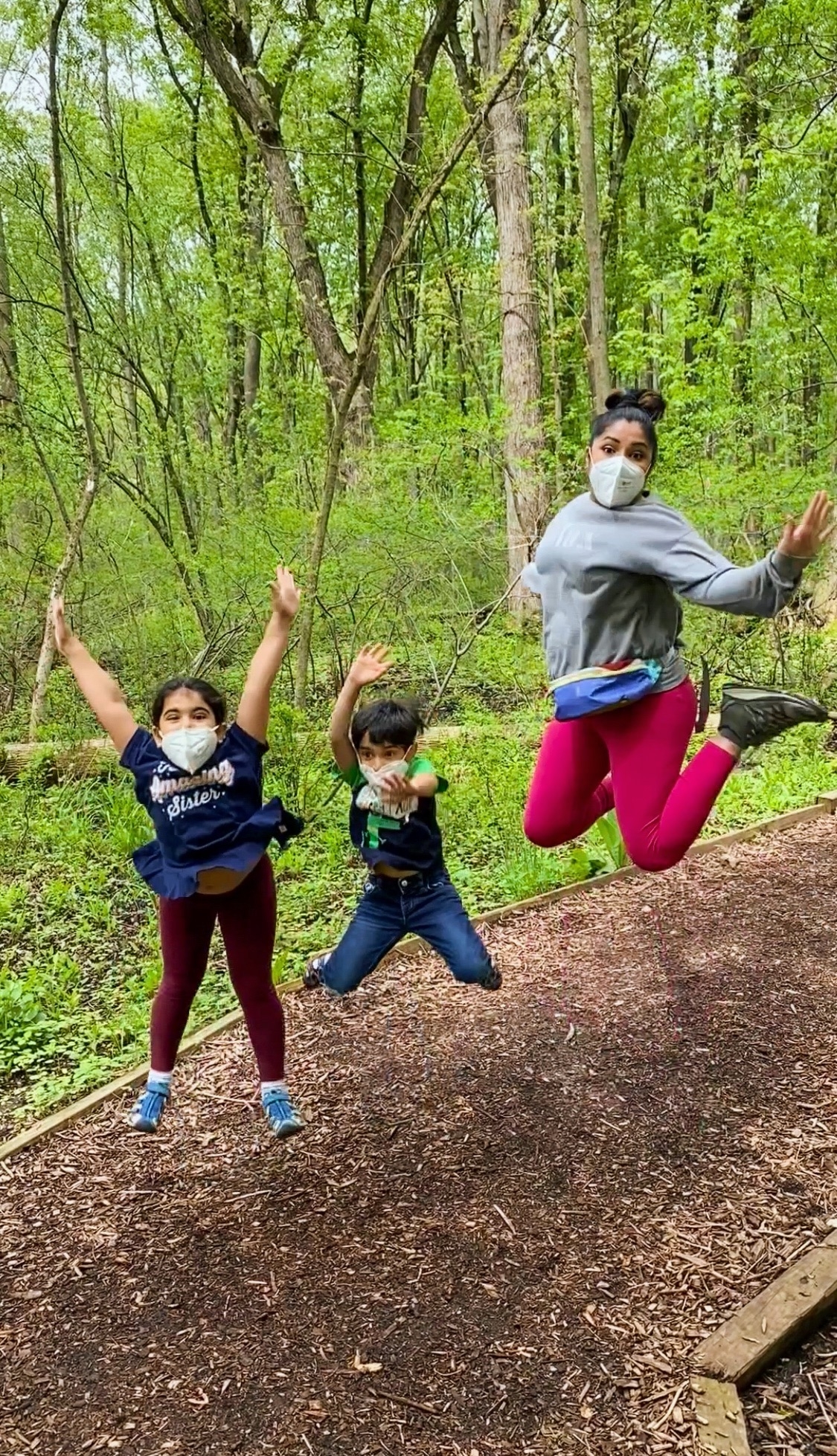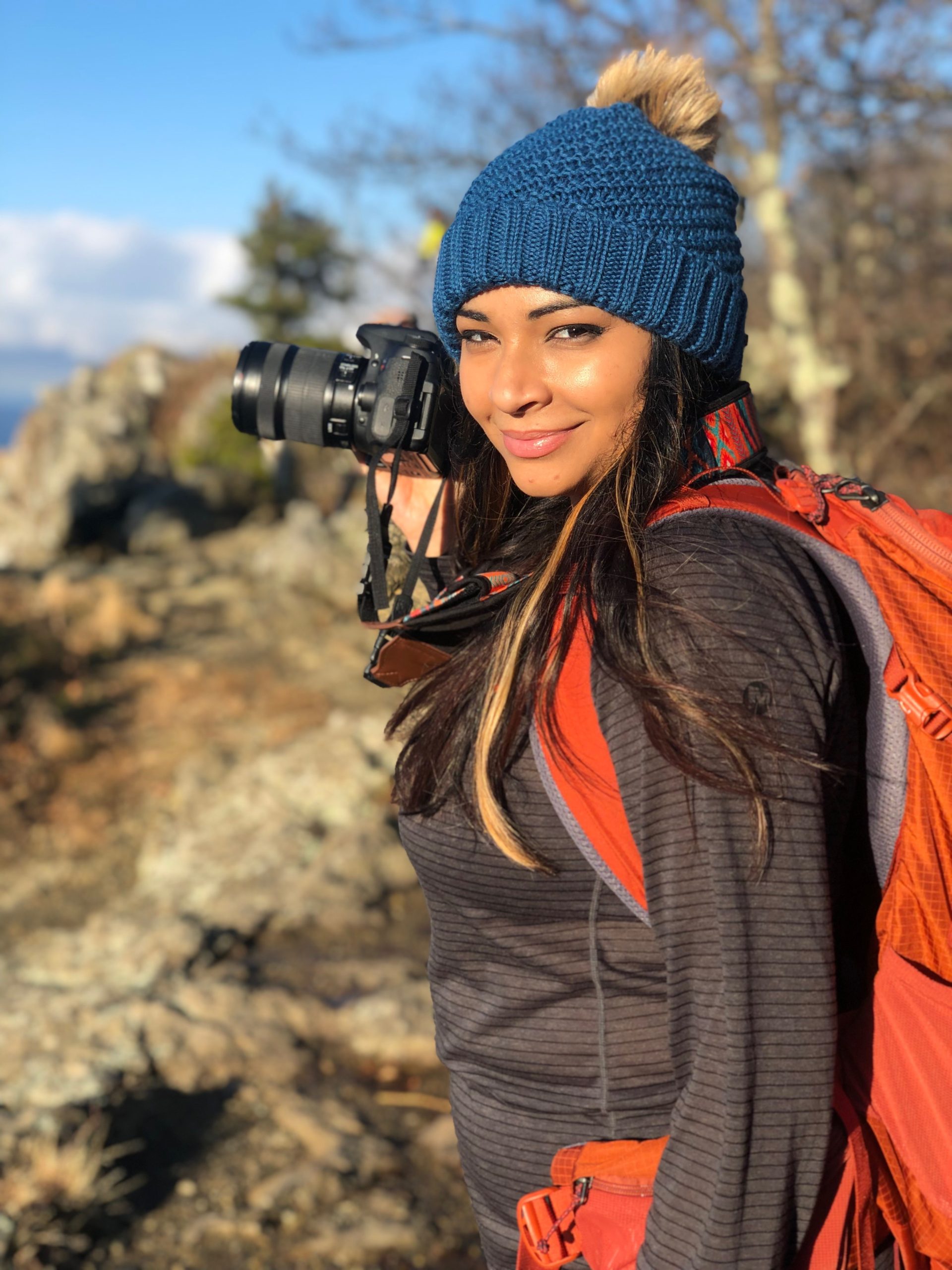Meet Ambreen Tariq, The Activist Behind Brown People Camping
Ambreen Tariq is a Muslim, an immigrant, an activist, and an outdoor enthusiast. She describes herself as a proud feminist and an advocate for social justice in American society. She’s the founder of @BrownPeopleCamping, a social media initiative that uses digital storytelling to celebrate people of color in the outdoor community. Ambreen is also the author of Fatima’s Great Outdoors, a children’s picture book centering on an immigrant family embarking on their first camping trip.
@BrownPeopleCamping uplifts and amplifies the voices of those who face obstacles to participating in outdoor recreation. Ambreen’s social media channels use the hashtag #BrownPeopleCamping to celebrate changemakers and everyday heroes fighting for social justice. Her posts attract numerous responses and sometimes spark heated discussions. They also forge a community and a space for sharing feelings and opinions. She put it best in one of her posts:
“Let’s talk and share and be honest about what we bring with us when we venture outdoors. What allows us to get out there and what holds us back. Let’s be honest about how we’re not all on equal footing to access our public lands. And those of us who can enjoy them, let’s share our joy with those who couldn’t come along.”
I sat down with Tariq, a non-practicing attorney who works for the federal government, to discuss @BrownPeopleCamping, her outdoor experiences, and her thoughts on diversity in outdoor activities.
Interview edited for length and clarity.
When did you become interested in the outdoors?
When I was eight, my family immigrated to Minnesota from India. My parents worked two jobs each, and we were struggling immigrants and sometimes viewed ourselves as outsiders. My parents wanted to give us the American experience. When spring came, it seemed like everyone in Minnesota headed outdoors, so we thought that was part of American culture. Someone told my parents about camping, so they saved up and got a tent. I think that being immigrants you are adventurous already, so this was just an extension of our experience.
What is your experience as a person of color in the outdoors?
As an adult in my 30s, when I went back outdoors it still looked exactly the same way it did in the early ’90s in Minnesota. Every part of my life had moved on. I had finished law school and was an empowered, proud, progressive American patriot, pushing for a social justice agenda while embracing my pride as an immigrant. Every part of my life was entrenched in diversity. Now suddenly I’m outdoors as an adult and it still looked exactly the same way it did.
Tell me about @BrownPeopleCamping.
The centennial of the National Park Service was in 2016. I was in Shenandoah and I saw a sign that said “Find Your Park.”
I immediately looked up the hashtag #findyourpark and connected with this movement with people all around the country. Then I started using the hashtag #BrownPeopleCamping. I started this initiative with the idea that I have photos, I have stories, and I’m just going to start by sharing my story. So that’s where it started and it’s grown into this beautiful community of people. I hate the phrase “followers.” The people who follow my accounts are a community, and I’m not an influencer. I’m a digital activist.
I start conversations with my content and the community shares powerful experiences and sentimentality and we engage in dialogue. I talk a lot about women’s issues, whether women of color or the universal experience. And talking about BIPOC (Black, Indigenous, People of Color) issues and social justice and all of these things are important; every single one of these issues affects you as a human being in whether you make it outdoors.
What can we do to remove barriers to a more diverse population recreating outdoors?
My project is about getting more people out there, talking about accessibility and authenticity in the outdoors. I don’t have to do it in this masculine way. Every culture has some sort of celebration of the outdoors, parties, barbecues, then just spiritually thinking about it as a religious space.
In my faith, Islam, every major revelation from a prophet or a holy person happens in spaces that are remote, natural, and separate from our very developed city lives. We can’t just tell people to get outside. We have to think about what are the privileges that enable me to be out there, obstacles that others do not overcome, cannot overcome, and will never.
As for barriers, I can only speak for myself. But there are some patterns in some experiences I’ve had that others share. There are inherently different patterns in the BIPOC experience in the United States.
There are people in this country who have very different relationships with the land. For some, their relationship to the land is that “it used to be ours and it was taken away from us.” Others were forced to come here and work that land. I’ve learned from my Black friends, colleagues, and advocates about the generational trauma that’s associated with remote space. What has happened to Black people in the woods is something that I have not had to experience. So, when we talk about why there aren’t more people of color in the outdoors, we have to think about who it is that we’re talking about and all the baggage that comes with it.
We can’t solve all the problems. We certainly can’t fix the generational trauma with the outdoors. What we can do is celebrate ourselves, celebrate those who have been out there and overcome these barriers in different ways. That way, we celebrate each other and make space for others to come adventure in their own way.
Featured image via Paulina Dao.
This website contains affiliate links, which means The Trek may receive a percentage of any product or service you purchase using the links in the articles or advertisements. The buyer pays the same price as they would otherwise, and your purchase helps to support The Trek's ongoing goal to serve you quality backpacking advice and information. Thanks for your support!
To learn more, please visit the About This Site page.






